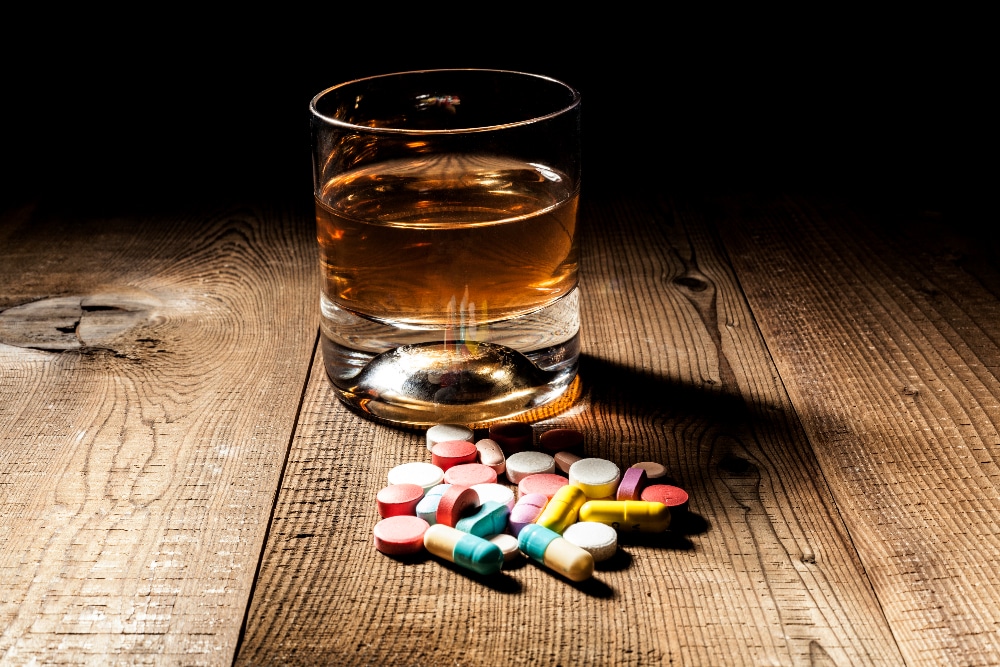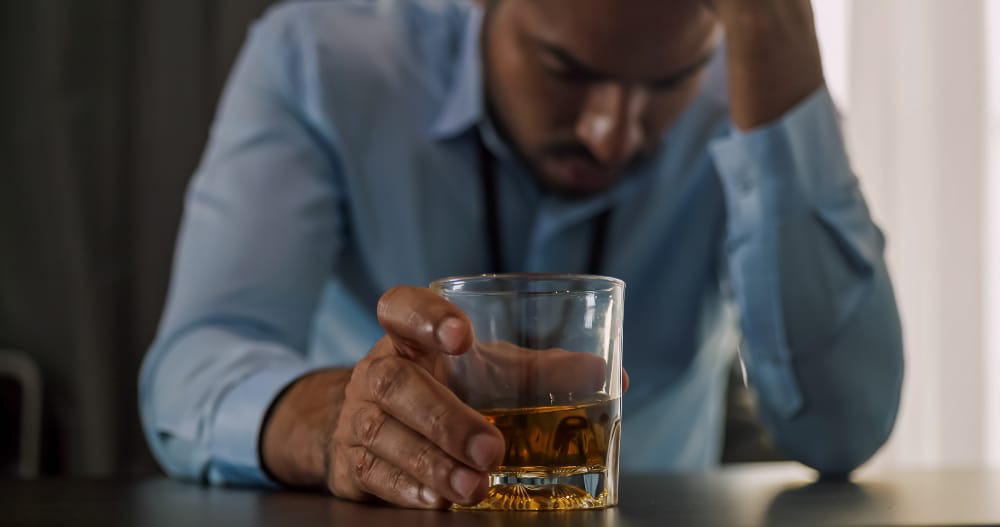Medically Reviewed by: Eric Chaghouri
In our quest for quick relief from pain and stress, many turn to solutions that may cause more harm than good. Among these, the mix of pain medication and alcohol stands out as particularly dangerous, yet its dangers are often underestimated. This deep dive seeks to illuminate the serious risks of combining these two substances, emphasizing the importance of informed decision-making for health and safety.
How Alcohol Affects the Body
Alcohol, as a central nervous system depressant, initially offers a sense of relaxation and reduced inhibition. However, its darker side emerges with higher consumption, impairing coordination, judgment, and reaction time. Its chronic use is a direct assault on the body, damaging organs and leading to long-term health complications. Understanding alcohol’s impact is crucial, especially when considering combining it with other substances such as painkillers.
Types of Pain Medication
Analgesics are divided into non-opioids, opioids, and adjuvants. Non-opioid analgesics, such as NSAIDs and acetaminophen, target mild to moderate pain and are generally safer with fewer side effects. Opioids, on the other hand, are for severe pain but carry a high risk of addiction and adverse effects. Adjuvants or co-analgesics may be used alongside these medications to enhance pain relief or target specific types of pain, offering a broader approach to pain management.
Pain Medications Dangerous to Mix with Alcohol
- Opioids: This class of medication, including fentanyl and prescription drugs like oxycodone, hydrocodone, Percocet, and morphine, is particularly risky to combine with alcohol. Both opioids and alcohol are central nervous system depressants, meaning they can slow breathing and heart rate. Mixing them can amplify these effects, increasing the risk of respiratory depression, overdose, and death.
- Nonsteroidal Anti-inflammatory Drugs (NSAIDs): While not as immediately dangerous as opiates when mixed with alcohol, NSAIDs such as ibuprofen, naproxen, and aspirin can still pose risks. Alcohol can increase the risk of gastrointestinal bleeding, ulcers, and kidney damage associated with these medications.
- Acetaminophen (Tylenol): Acetaminophen and alcohol are a combination that can be particularly hard on the liver. Both substances are metabolized by the liver, and consuming them together can increase the risk of liver damage or even acute liver failure, and other health conditions.
- Tricyclic Antidepressants: Some pain management protocols include tricyclic antidepressants for chronic pain. Mixing these medications with alcohol can lead to heightened sedation, increased heart rate, and a spike in blood pressure, among other potential effects.
Pain Medications Considered Safer to Mix with Alcohol
It’s a common misconception that certain pain medications are “safe” to mix with alcohol. However, the reality is that mixing any medication with alcohol carries risks. That being said, some pain-relief options have a lower risk of severe interactions with alcohol, but this does not mean they are entirely safe:
- Topical Analgesics: Medications applied directly to the skin, such as creams, gels, and patches for pain relief, generally have less systemic absorption and therefore a lower risk of interacting with alcohol. However, the active ingredients and their potential systemic effects should still be considered.
- Certain Over-the-counter (OTC) Medications: Some OTC pain relievers may be considered to have a lower risk when consumed with alcohol in moderate amounts. However, this does not eliminate the risk of side effects or interactions, especially with excessive alcohol consumption.
It’s essential to emphasize that “safer” does not equate to “safe.” The safest course of action is to avoid mixing alcohol with any pain medication. Alcohol can alter the metabolism and effectiveness of various medications, increase the risk of side effects, and in some cases, lead to serious health consequences. Always consult with a healthcare provider before combining pain medication with alcohol, even if you believe the medication falls into a “safer” category. A healthcare professional can provide personalized advice based on your medical history, the specific medication you’re taking, and your overall health profile.
How to Safely Manage Pain
Managing pain safely involves considering alternatives to medication and understanding the importance of moderation and timing in alcohol consumption:
- Alternatives to Medication: Exploring non-pharmacological approaches like physical therapy, yoga, and lifestyle changes can offer significant benefits without the risks associated with drugs.
- Guidelines for Drinking Responsibly: If alcohol consumption is necessary, ensuring it does not overlap with the use of pain medication is critical. Following moderate drinking guidelines can help mitigate risks.
Recover From Drug Abuse and Addiction
Mixing pain medication with alcohol is fraught with risks, including serious health issues like liver damage, gastrointestinal complications, and potentially fatal overdoses. Consulting with healthcare professionals is crucial for safe pain management strategies that don’t involve alcohol.
If you or a loved one are struggling with alcohol dependence, alcohol use disorder, or another substance use disorder, get in touch with No Matter What Recovery for more information about alcohol addiction treatment options and rehab.
FAQs
It is strongly advised to wait until the effects of alcohol have fully dissipated before taking any pain medication. The combination can lead to dangerous interactions, especially with prescription opioids.
Ideally, wait at least 24 hours between the use of pain medication and alcohol consumption. This allows enough time for the medication to be metabolized and reduces the risk of adverse reactions.
Symptoms of a dangerous interaction include extreme drowsiness, difficulty breathing, unresponsiveness, severe dizziness or confusion, and slowed or irregular heartbeat. Immediate medical attention is essential in these cases.
If you’ve mixed these substances and are concerned about the effects, it’s crucial to seek help immediately. Contacting a healthcare provider, or poison control center, or heading to the nearest emergency department can provide the necessary assistance and prevent serious complications.

Dr. Eric Chaghouri is our Medical Director at No Matter What Recovery. Since completing his forensic psychiatry fellowship, he has established a successful and thriving practice in Southern California, focusing on treatment of co-occurring psychiatric and addictive disorders.

Dr. Eric Chaghouri is our Medical Director at No Matter What Recovery. Since completing his forensic psychiatry fellowship, he has established a successful and thriving practice in Southern California, focusing on treatment of co-occurring psychiatric and addictive disorders.










